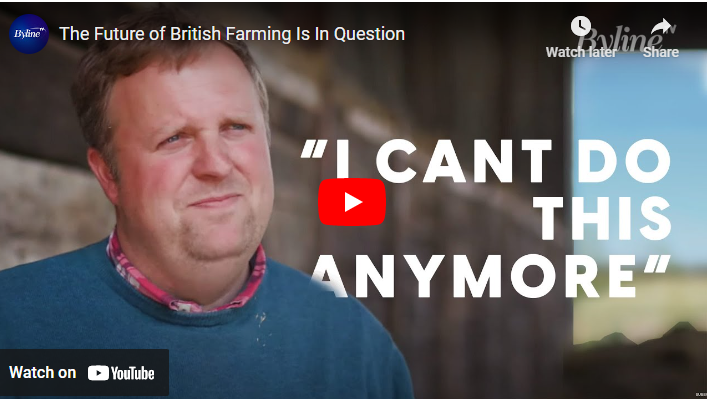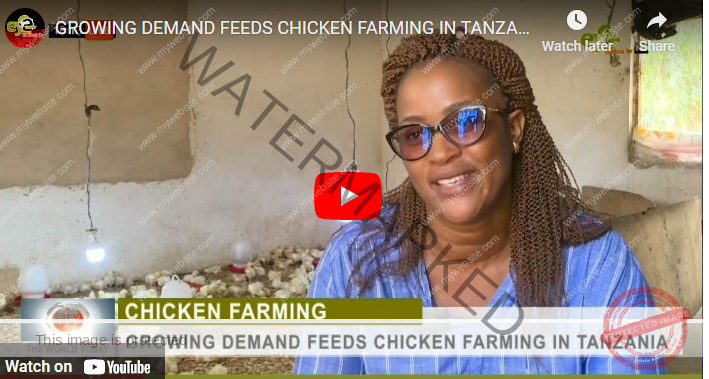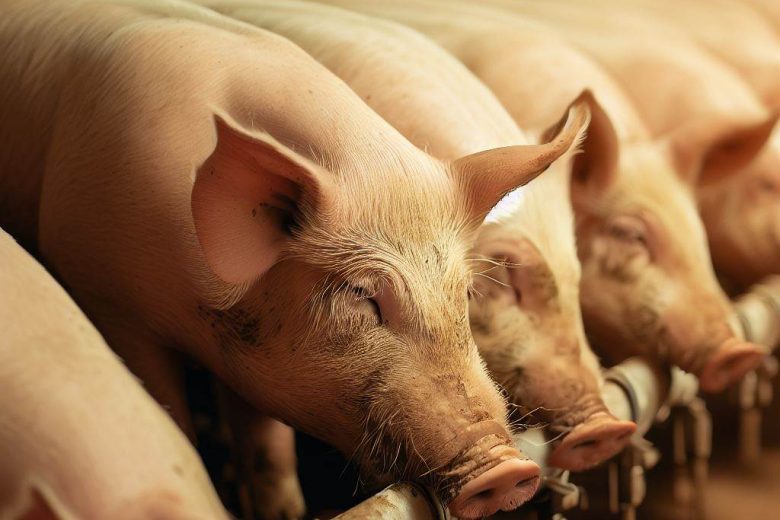England, known for its picturesque countryside and agricultural heritage, is home to a diverse and thriving farming industry. Within this sector, a select group of individuals has risen to prominence, becoming the wealthiest farmers in the country.
In this article, we delve into the stories of England’s richest farmers, uncovering their entrepreneurial journeys, innovative practices, and contributions to the agricultural landscape.
Richest Farmers in England
England is a country of rich agricultural activities. As such, it is possible that the country is home to numerous rich farmers.
Nonetheless, during the time of compiling this informative piece on the richest farmers in England, the name that is obvious to all is none other than Sir James Dyson.
Read Also: Top 5 Richest Farmers in the Philippines
1. Sir James Dyson
Sir James Dyson, a name synonymous with innovation and entrepreneurship, has not only revolutionized the world of technology but also made a significant mark in the agricultural sector.
As the inventor of the bagless vacuum cleaner and a series of other groundbreaking household appliances, Dyson’s journey to becoming England’s richest farmer is an inspiring tale of ingenuity, perseverance, and a passion for sustainable farming practices.
Read Also: Top 5 Richest Farmers In Ontario
Biography and Early Life
Born on May 2, 1947, in Cromer, Norfolk, England, James Dyson exhibited an early fascination with engineering and problem-solving.
He studied at the Gresham’s School in Holt and later pursued industrial design at the Royal College of Art in London.
Dyson’s passion for invention and his relentless pursuit of improvement would shape his future career and establish him as one of the most influential figures in technology and farming.
Read Also: Top Richest Farmers in Florida
Invention of the Dyson Vacuum Cleaner
In the early 1970s, Dyson grew frustrated with the diminishing suction power of his traditional vacuum cleaner due to clogging caused by dust-filled bags.
This inspired him to develop a better solution, resulting in the invention of the world’s first bagless vacuum cleaner.
Dyson’s patented Dual Cyclone technology revolutionized the cleaning industry, providing consistent suction power without the need for bags.
The success of his vacuum cleaner propelled him to international recognition and laid the foundation for his entrepreneurial ventures.
Diversifying into Agriculture
While Dyson’s fame and wealth primarily originated from his technology inventions, his passion for sustainable farming practices led him to acquire agricultural land in the UK.
He became particularly interested in organic farming and embarked on a mission to create a sustainable and efficient farming operation.
Read Also: The Top 12 Richest Farmers in California
Dyson aimed to combine cutting-edge technology and traditional farming practices to promote environmental stewardship and enhance the quality of food production.
Expansion of Dyson Farming
Dyson’s foray into agriculture took shape with the establishment of Dyson Farming Ltd.
The company, founded in 2001, focuses on a range of farming practices, including arable farming, beef and sheep rearing, and forestry.
Dyson Farming places a strong emphasis on sustainable and environmentally friendly methods, employing precision agriculture techniques, such as soil monitoring, efficient irrigation, and optimized resource management.
By leveraging technology, Dyson Farming strives to maximize yields while minimizing the environmental impact of its operations.
Read Also: Top 10 Richest Cattle Farmers in the World
Net Worth and Philanthropy
As of the latest available estimates, Sir James Dyson’s net worth stands at approximately $9.5 billion.
His success in both the technology and agricultural sectors has contributed significantly to his wealth.
Furthermore, Dyson’s philanthropic endeavors are noteworthy, as he actively supports scientific research, education, and environmental conservation efforts.
His charitable contributions aim to foster innovation and empower future generations to address pressing global challenges.
2. The Vestey Family:
The Vestey family, known for their involvement in the meat and livestock business, holds extensive agricultural land across the UK. With a rich history in the industry, the Vesteys have established themselves as prominent figures, contributing to the growth and development of the agricultural sector in the country.
Farming Systems Used by these Richest Farmers
The richest farmers in England employ diverse farming systems tailored to their specific operations and market demands. Some of the commonly used farming systems include:
- Arable Farming: Many wealthy farmers in England engage in arable farming, focusing on the cultivation of crops such as wheat, barley, oilseeds, and vegetables. They employ modern technologies, precision farming techniques, and crop rotation practices to optimize yields and maintain soil health.
- Livestock Rearing: The rearing of livestock, including cattle, sheep, pigs, and poultry, is another key farming system utilized by affluent farmers. These farmers often invest in high-quality breeding stock, implement advanced animal husbandry practices, and prioritize animal welfare to ensure optimum productivity and product quality.
- Organic Farming: With growing consumer demand for organic products, some of the wealthiest farmers in England have embraced organic farming methods. These systems avoid the use of synthetic fertilizers, pesticides, and genetically modified organisms (GMOs). Instead, they focus on natural soil fertility, crop rotation, and biological pest control to produce certified organic food.
- Integrated Crop-Livestock Systems: A number of successful farmers in England integrate crop and livestock production on their farms. This approach optimizes resource utilization by utilizing crop residues as feed for animals and using animal manure as organic fertilizer for crops. This system fosters a symbiotic relationship between crops and livestock, enhancing overall farm productivity and sustainability.
Successful Strategies of the Richest Farmers in England
The richest farmers in England employ various strategies that contribute to their success. Some key strategies include:
- Technological Innovation: Successful farmers embrace cutting-edge technologies, such as precision farming tools, data analytics, and automation, to optimize production processes, reduce costs, and improve efficiency.
- Diversification and Vertical Integration: Wealthy farmers often diversify their operations by engaging in multiple agricultural enterprises or value-added activities. They vertically integrate their supply chains by establishing processing, packaging, and distribution facilities, enabling them to capture a larger share of the value chain and increase profitability.
- Market Orientation: The richest farmers in England are market-oriented, actively identifying consumer trends and adapting their production accordingly. They focus on producing high-quality products, catering to niche markets, and establishing strong relationships with retailers, wholesalers, and consumers.
- Sustainability and Environmental Stewardship: Many successful farmers prioritize sustainability by adopting environmentally friendly practices. They invest in renewable energy production, implement water management systems, practice responsible pesticide use, and enhance biodiversity on their farms. These efforts align with growing consumer demand for sustainably produced food and contribute to long-term farm viability.
Factors that Contribute to Farming Success in England
Several factors contribute to farming success in England, including:
- Access to Capital: Adequate financial resources enable farmers to invest in modern equipment, technologies, infrastructure, and high-quality inputs. Access to capital facilitates expansion, diversification, and risk management.
- Knowledge and Skills: The richest farmers in England possess extensive agricultural knowledge and expertise. They continuously update their skills through training programs, research collaborations, and industry networks, allowing them to adapt to evolving practices and seize new opportunities.
- Supportive Agricultural Policies: Favorable government policies, subsidies, grants, and agricultural support programs play a crucial role in fostering farming success. Policies that promote sustainable practices, market access, and infrastructure development facilitate farm profitability and growth.
- Market Demand and Consumer Preferences: Understanding market demand and consumer preferences is essential for successful farming. Farmers who can produce high-quality, sustainable, and ethically produced food products that align with consumer preferences are more likely to succeed.
Challenges of Farming in England
Farming in England also presents several challenges, including:
- Volatile Weather Conditions: Unpredictable weather patterns, including extreme temperatures, droughts, and floods, pose challenges for farmers in England. These conditions can impact crop yields, livestock health, and overall farm productivity.
- Land Availability and Cost: The availability and cost of agricultural land in England can be a significant challenge, especially for new or aspiring farmers. High land prices and limited availability make it difficult to enter the industry or expand existing operations.
- Regulatory and Compliance Burdens: The agricultural sector in England is subject to various regulations and compliance requirements related to environmental protection, animal welfare, food safety, and traceability. Meeting these obligations can be time-consuming and financially burdensome for farmers.
- Market Uncertainties: Fluctuating commodity prices, trade disruptions, and changing consumer preferences present market uncertainties for farmers. Adapting to market dynamics and maintaining profitability in a competitive environment can be challenging.
Lucrativeness of Farming in England
Farming in England can be financially rewarding for successful and efficient farmers.
Factors contributing to the lucrativeness of farming include high-quality agricultural products, strong domestic and international market demand, access to premium markets, and the potential for diversification and value addition.
Government support programs and subsidies can provide financial incentives for farmers.
Contributions to Local Communities and Rural Development
Beyond their financial success, the richest farmers in England have played a pivotal role in fostering rural development and strengthening local communities.
They have been instrumental in creating employment opportunities, supporting local businesses, and investing in infrastructure projects that benefit the regions in which they operate.
By actively engaging with neighboring communities, they have helped revitalize rural economies, promote education and skills development, and preserve cultural heritage associated with farming traditions.
Are Farmers Rich in the UK
The term “rich” implies having substantial financial resources and a high income.
While there are undoubtedly farmers in the UK who achieve financial success and enjoy a comfortable lifestyle, it is important to note that farming, like any other business, can be subject to economic fluctuations and challenges.
The income of farmers in the UK can vary significantly depending on factors such as farm size, enterprise type, market conditions, and external factors like weather events and global market dynamics.
Are Farmers Wealthy UK
The concept of wealth goes beyond income and encompasses the total value of assets owned by an individual or business.
In this regard, farmers in the UK can possess significant wealth in the form of land, property, machinery, livestock, and other agricultural assets.
These assets, when accumulated and managed effectively, can contribute to long-term financial stability and security for farming families.
The value of agricultural land in the UK has historically appreciated, contributing to the wealth of farmers who own substantial acreage.
Land is often seen as a valuable asset that can provide long-term returns and serve as collateral for loans and business expansion.
Successful farmers may diversify their operations, invest in alternative revenue streams such as renewable energy projects, agritourism, or value-added products.
These endeavors can further contribute to their overall wealth by generating additional income and creating a resilient and diverse agricultural enterprise.
Conclusion
The rise of England’s richest farmers reflects their unwavering dedication, entrepreneurial acumen, and commitment to sustainable agriculture. Through their visionary leadership, embrace of technology, diversification strategies, and contributions to local communities, they have become trailblazers within the farming industry.
As England’s agricultural landscape continues to evolve, their influence will persist, driving innovation, fostering sustainability, and ensuring the prosperity of the farming sector for generations to come.





